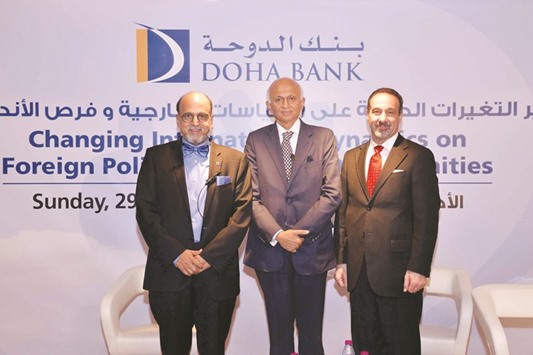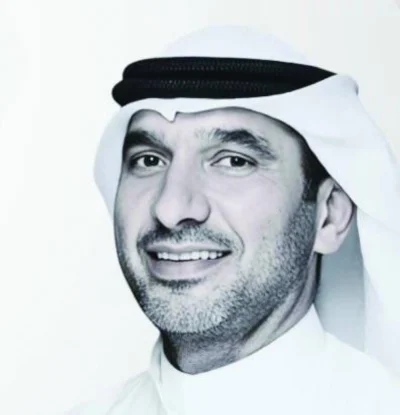Doha Bank recently hosted a knowledge sharing session on ‘Changing International Dynamics on Foreign Policies and Allied Opportunities’ at the Doha Bank Tower auditorium.
The chief guest for the event was former Indian foreign secretary and Indian high commissioner to the UK, Ranjan Mathai. Dr Mehran Kamrava, director of the Centre for International and Regional Studies Georgetown University, also spoke before diplomats and senior staff from major corporates in Qatar during the event.
Providing insight on current global scenario and changing diplomatic dynamics, Mathai said the changing diplomatic interplay between the major powers of the world “could lead to a new world order.”
He said the dynamics of the key relationship between the US, China, and Russia would have “great influence” over the course of many international relationships involving Japan and South East Asia, India, Europe, and West Asia.
The rapid growth in India, Bangladesh, Sri Lanka and other countries in South Asia “is fuelling change” in the subcontinent’s external ties, Mathai said.
He added that the Gulf region, particularly the UAE, Qatar, and Saudi Arabia would have stronger ties with India. Matthai also noted the Gulf would remain significant to the global economy and that oil and gas “would continue to be vital for decades to come.”
Kamrava, on the other hand, gave insight on the key developments in the Middle East region and the shift in “qualitative power since early 2000, with new actors emerging.” He also gave insight on role of Qatar in last decade, and highlighted the efforts of Iran to integrate with nations and measures such as Iran Nuclear deal.
Doha Bank CEO Dr R Seetharaman gave an insight on the current global scenario. Citing figures from the IMF, he said January 2017 global growth is expected to be at 3.1%. Advanced economies are now projected to grow by 1.9%, while emerging and developing economies growth is currently estimated at 4.5% for 2017.
“We need to anticipate what policy shifts could do for the world’s economic outlook. There are risks associated with political uncertainty, trade frictions, and adverse effects of a rising dollar,” he said.
Seetharaman said capital rules for the banking sector are being redefined and the financial markets are getting “more volatile” on account of changing dynamics.
“Contentious issues are coming between developed and developing world on global trade and investment. The lack of convergence between politics and economics could impact global growth,” he said.

Doha Bank CEO Dr R Seetharaman with special guests of the bank’s recently-held knowledge sharing session.


